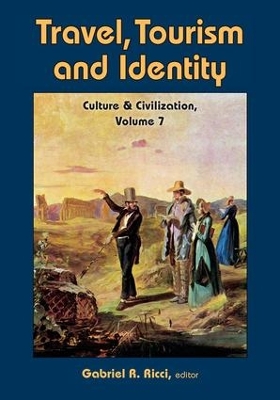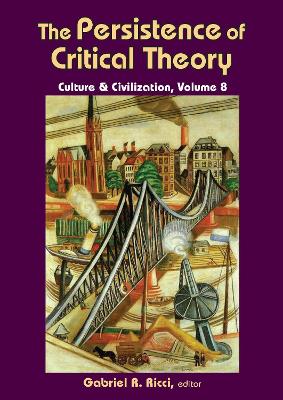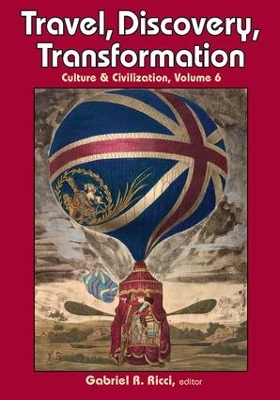Culture and Civilization
3 total works
Travel, Tourism and Identity addresses the psychological and social adjustments that occur when people make contact with others outside their social, cultural, or linguistic groups. Whether such contact is the result of tourism, seeking exile, or relocating abroad, the volume's contributors demonstrate how one's identity, cultural assumptions, and worldview can be brought into question.
In some cases, the traveller finds that bridging the social and cultural gap between himself and the new society is fairly easy. In other cases, the traveller discovers that reorienting himself requires absorbing a new cultural history and traditions. The contributors argue that making these adjustments will surely enhance the traveller's or tourist's experience; otherwise the traveller or tourist will be at risk of becoming a marginalized figure, one disconnected from the society that surrounds him.
This latest volume in the Culture & Civilization series features a collection of essays on travel and tourism. The essays cover a range of topics from historical travels to modern social identities. They discuss ancient travels, contemporary travels in Europe, Africa and sustainable eco-tourism, and the politics of tourism. Essays also address experiences of Grenada's "Spice Island" identity, and the effects of globalization and migrations on personal identity.
The latest volume of Culture and Civilization gathers contemporary exponents of critical theory, specifically those based in the Frankfurt School of social thinking. Collectively, this volume demonstrates the continuing intellectual viability of critical theory, which challenges the limits of positivism and materialism. We may question how the theoretical framework of Marxism fails to coordinate with the conditions that defined labor forces, as did Max Horkheimer and Theodor Adorno, or deliberate on the conditions that justify the claims we make through public discourse, as did Jurgen Habermas. Or, like Axel Honneth, we may reflect on recognition theory as a means of addressing social problems. Whatever our objective, the focus of critical theory continues to be the consciousness of established "positive" interests that, without debate, may sustain injustices or conditions which the public may not have chosen to impose. Throughout the hardship of punitive dismissal and exile in the 1930s and 40s, and the shock of the New Left in the 1960s and 70s, and finally the later linguistic and pragmatic turn, the Frankfurt School has sustained the idea that people escape disaffection and alienation when their knowledge of the social and political world is dialectically mediated through creative interaction. This new volume in the Culture and Civilization series continues the tradition of critical thought.
This latest volume in the Culture & Civilization series gathers interdisciplinary voices to present a collection of essays on travel and travel narratives. The essays span a range of topics from iconic ancient travel stories to modern tourism. They discuss travel in the ancient world, modern heroic travels, the literary culture of missionary travel, the intersection of fiction and travel narratives, modern literary traditions and visions of Greece, personal identity, and expatriation. Essays also address travel memoirs, the re-imagining of worlds through travel, transformed landscapes and animals in travel narratives, diplomacy, English women travel writers, and pilgrimage and health in the medieval world.
The history of travel writing takes in multiple pursuits: exploration and conquest, religious pilgrimage and missionary work, educational tourism and diplomacy, scientific and personal discovery, and natural history and oral history. As a literary genre, it has enhanced a wide range of disciplines, including geography, ethnography, anthropology, and linguistics. Moreover, twenty-first-century interests in travel and travel writing have produced a global framework that promises to expand travel's theoretical reach into the depths of the Internet, thus challenging our conventional concept of what it means to travel.
The fact that travel and travel writing have a prehistory that is embedded in foundational religious texts and ancient narratives of journey, like the Odyssey and the Epic of Gilgamesh, makes both travel and travel writing fundamental and essential expressions of humanity. Travel encourages writing, particularly as epistolary and poetic chronicling. This is clearly a history and tradition that began with human communication and which has kept pace with our collective development.


